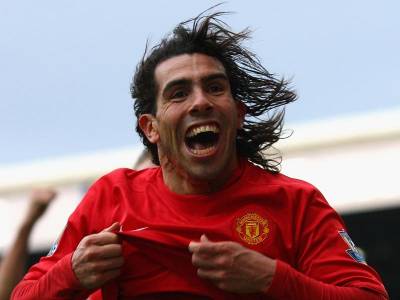Between the years 1989 and 2002, Manchester United comprehensively dominated local rivals City when it came to the derby ties betwixt the two clubs.
After hammering United 5-1 at Maine Road in September of ’89, City then endured a 13-year barren run before finally emerging victorious again in November of 2002, thanks mainly to Shaun ‘The Goat’ Goater‘s 100th and 101st goals for the club.
Throughout the majority of those 13 drab campaigns, City were stuck contesting league derbies with the likes of Bury, Macclesfield and Stockport whilst United paraded a series of illustrious trophies through the streets of the Manchester.
The disparity between the two club’s fortunes gave rise to an air of dismissal within the United support, who seized the opportunity to brand City as increasingly irrelevant as the gulf continued to widen, before being abruptly narrowed again in 2007.
City’s transmogrification began under the ill-fated ownership of billionaire corruption magnate Thaksin Shinawatra, but really hit it’s stride in 2008 thanks to Sheikh Mansour bin Zayed al Nahyan‘s seemingly bottomless vat of Arabian petrodollars.
Manchester United manager Sir Alex Ferguson has made scant effort to disguise his flagrant dislike of the modern-day City, frequently voicing his disdain at having to watch Manchester’s financial crux shift across the city.
The nouvelle riche ‘blue half’ can now massively outbid the ‘red half’ for any particular trinket that takes their fancy, and this yielding of fiscal power and draw has rankled with Ferguson ever since City capitalised on United’s hesitancy and spirited Carlos Tevez to Eastlands back in the summer of 2009.
The significant coup/defection was forever immortalised by means of the now-infamous ‘Welcome to Manchester’ billboard that was almost immediately erected by City on the edge of the city boundary next to Salford and the Borough of Trafford (i.e. United’s neck of the woods).
The poster seemed to stand as an allegory of Ferguson’s increasing interest in developments at Eastlands – a fitting monument to the Gods of attention-seeking.

Despite being erected on Deansgate nearly 16 months ago, the ruddy-faced United patriarch is apparently still irked by the graven image of Tevez, suggesting that many City fans are now embarrassed by the fact that the print is still infinitely more prominent than their trophy cabinet:
“I don’t know how it was created, probably some advertising gimmick at City.
But I don’t think they can be proud of it. I said it was stupid at the time. They probably think that now.
I don’t see how they thought it would get more points off us when it came to playing on a football pitch.
Maybe it was worthwhile for some of the supporters but I think a lot of them were embarrassed.
They would rather see that trophy being paraded through the city before they start screaming from the rooftops.”
There’s nothing like a potentially fraught, virus-ridden derby to bring the old latent insecurities to the fore.
Seems like City’s fairly innocuous little publicity stunt has gone on to achieve exactly what they wanted it to, in that every time Ferguson gets driven through Salford, he’s reminded that he effectively swapped Tevez for the plasticine hamstrings of Michael Owen.

Since ‘The Goat’ ended City’s prolonged derby woes in 2002, they have become a fairly persistent thorn in Ferguson’s paw – notching four victories at Eastlands and one at Old Trafford in eight years – yet still, the United manager remains insistent that the club’s rivalry with Liverpool retains the edge:
“It’s only the last few years that City have had a consistent position in the Premier League. For quite a few years they were up and down, but they are far more consistent and solid now and there is a far better structure to them.”
It’s a different type of derby to the Liverpool game. That game is one of honours in terms of trophies won, because Liverpool edge it in terms of European Cups and we edge it in FA Cups and world championships.
We are undoubtedly the two most successful clubs in British football and, when we meet, it’s a different type of derby game.”
Although Ferguson went on to admit that there’s nothing quite like emerging victorious from a Manchester derby:
“Now the game between ourselves and City is one of great intensity. It’s built up by the media explosion around what City are doing and trying to achieve in their own way and the fact we’re both in the same city.
There’s an incredible intensity now which wasn’t there 10 or 15 years ago, but there’s nothing more satisfying than actually winning the derby game.”
Regardless of their scattergun £multi-million acquisition protocol, until City actually put an end to their 34-year silverware drought (and I’d wager that winning one trophy would still be written off as a fluke in United circles), they will find that clawing back any kind of respect back from their rivals as a pretty thankless task.
That said, the chances of there being sky-blue and white ribbons knotted to the handles of the Premier League pot after 38 games are rapidly, and undeniably, shortening.
Add Sportslens to your Google News Feed!